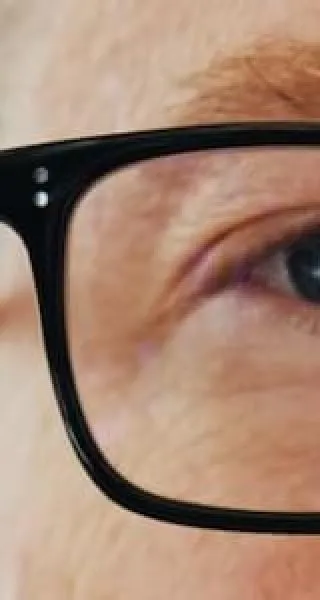Our Mental Health Treatment Center in Beverly Hills offers advanced, evidence-based strategies for depression treatment, specifically crafted to meet your individual needs.
Our outpatient facilities, strategically located in central Beverly Hills, ensure that all patients have easy access.
According to the National Institute of Mental Health, approximately 7.1% of American adults have suffered from depression. This common disorder has serious impacts.
At GIA Beverly Hills, we recognize that depression impacts not only the individual but also their friends, family members, and colleagues. Our treatments empower you to recover fully and start living your best life.
Need help for yourself or a loved one? Call us now.
Read below to learn more about our approach and depression treatment options.
- Treatment Options For Depression At GIA Beverly Hills
- Our Approach To Depression Treatment At GIA Beverly Hills
- Tms Therapy For Depression Provided By Dr Antonello Bonci And Our Team
- What Is Tms Therapy
- How Does Tms Treat Depression
- Does Tms Therapy Work For Treatment Resistant Depression
- What To Expect During A Tms Therapy Session For Depression
- Depression Therapy How Many Sessions Do I Need
- Effectiveness Of Tms For Depression Treatment
- Is Tms Therapy Covered By Insurance
- Can Tms Make Depression Worse
- Can Tms Damage Your Brain
- Can Tms Change Your Personality
- Get Help Now Depression Treatment Center Near Me In Beverly Hills Ca
- How Do I Know I Need Treatment What Do Symptoms Of Depression Feel Like
- How To Encourage Someone With Depression To Start Treatment
Treatment Options for Depression at GIA Beverly Hills
At GIA Beverly Hills, we provide various therapies to combat depression. Our offerings include:
- Transcranial Magnetic Stimulation (TMS)
- medical management
- Cognitive Behavioral Therapy (CBT)
- Dialectical Behavior Therapy (DBT)
- group therapy
- couple therapy
Understanding that each patient has unique needs, we customize our treatment programs to address individual problems, traumas, and life situations.
The process begins with a consultation and psychiatric evaluation to accurately diagnose the condition. From there, we develop an effective treatment plan tailored to meet your specific needs.
Our Approach to Depression Treatment at GIA Beverly Hills
We at GIA Beverly Hills are experts in using Transcranial Magnetic Stimulation (TMS) therapy to treat depression. We focus on each individual’s unique requirements, creating a personalized treatment plan that effectively manages and alleviates depression symptoms.
The treatment journey begins with a thorough assessment to understand your specific situation, including medical history, current symptoms, and past treatments. This assessment guides us in crafting the most suitable and effective treatment plan for you.
We strive to create a supportive and comfortable environment, making it easier for you during your treatment sessions. Our plans are flexible, designed to fit your schedule and reduce disruptions to your daily life.
While specializing in TMS therapy, we also offer a range of other therapeutic options. We adopt a holistic approach by combining TMS with additional supportive measures such as counseling, lifestyle adjustments, and continuous progress monitoring. This comprehensive care strategy ensures that all facets of your mental health are addressed.
Our ultimate goal at GIA Beverly Hills is not merely to treat symptoms but to help you achieve sustainable well-being and enhanced quality of life. We are dedicated to supporting you throughout your recovery journey.
TMS Therapy for depression provided by Dr. Antonello Bonci and our team
At GIA, our treatment approach is led by Dr. Antonello Bonci, a pioneering specialist in Transcranial Magnetic Stimulation (TMS). His groundbreaking clinical researches have proven the effectiveness of TMS, helping it gain global approval for treating various mental health issues. Dr. Bonci and our team are dedicated to providing the highest quality care based on current evidence-based research, a field in which Dr. Bonci actively contributes. By choosing GIA, you are in truly expert hands, supported by a team committed to your recovery journey.
What is TMS Therapy?
TMS therapy, approved by the FDA, is a non-invasive treatment using gentle magnetic pulses to stimulate specific brain areas. For over three decades, this therapy has successfully helped millions dealing with depression, anxiety, or insomnia.
These mental health issues often stem from parts of the brain that are underactive or overactive. By targeting these areas, TMS therapy can enhance mood, decrease cravings, and reduce other symptoms. The convenience of TMS therapy is significant, as patients can immediately resume daily activities after each session.
How Does TMS Treat Depression?
TMS therapy employs a magnetic coil placed over the head, sending gentle pulses to the brain. These pulses focus on the prefrontal cortex, a region crucial for mood regulation. In individuals with depression, this area typically exhibits reduced activity.
The magnetic pulses stimulate these underactive zones, enhancing their activity, thereby aiding mood regulation. This activation can alleviate common depression symptoms like persistent sadness, disinterest, and hopelessness. TMS therapy boosts brain function, akin to jump-starting a car with a weak battery, improving mood as a result.
TMS therapy is recognized for being safe, painless, and devoid of long-term side effects, setting it apart from some traditional treatments, such as medication. It offers a valuable treatment alternative for those who have not found relief through other methods.
Does TMS Therapy Work for Treatment-Resistant Depression?
The US Food and Drug Administration approves TMS therapy for treating major depressive disorders. The American Psychiatric Association endorses TMS for its significant benefits in managing treatment-resistant depression. This approach is safe, painless, and non-invasive and can be effectively combined with other depression treatments. Numerous trials and studies support its efficacy, demonstrating its success in providing relief where other methods may fail.
What to Expect During a TMS Therapy Session for Depression
TMS therapy is a non-invasive, painless procedure that does not require anesthesia, making it an excellent alternative to ECT or heavy medications. Here’s what you can expect during a session:
- TMS Therapy Duration: Conducted by a certified TMS physician, the therapy typically spans up to six weeks, with each session lasting 20 to 50 minutes, depending on individual needs.
- Procedure Steps:
- Placement of the Electromagnetic Coil: A TMS physician positions an electromagnetic coil on the side of your head.
- Measuring the Motor Threshold: A technician measures the magnetic energy needed to make your thumb twitch, personalizing the treatment.
- Stimulation: The coil is placed over the brain’s prefrontal cortex, where painless magnetic pulses stimulate brain activity and nerve cells.
During the session, you may hear clicking sounds and feel a tapping sensation on your head, which are normal effects of the magnetic pulses. If discomfort arises, the session can be paused or stopped to address any concerns.
The design of TMS therapy aims to provide a comfortable and supportive experience, enhancing your ability to manage symptoms and improve your quality of life.
Depression Therapy: How Many Sessions Do I Need?
The number of TMS sessions varies per individual. Some may notice changes after one to two weeks (5-10 sessions), while others see improvements around the fourth or fifth week (20-25 sessions). Completing the entire course of treatment is recommended, regardless of when initial improvements are observed.
Effectiveness of TMS for Depression Treatment
TMS has proven to be an effective depression treatment, particularly for those unresponsive to traditional therapies like medication and talk therapy. Key points include:
- High Success Rates: Approximately 50-60% of patients with treatment-resistant depression respond well to TMS, with about one-third achieving complete remission.
- Long-Lasting Results: The benefits of TMS can persist for months or even years, especially with maintenance sessions.
- Minimal Side Effects: Compared to antidepressants, TMS typically causes fewer side effects, the most common being mild scalp discomfort or transient headaches.
- Personalized Care: TMS treatments are customized for each patient, enhancing their effectiveness.
- Improved Quality of Life: Many patients report significant improvements in daily life, mood, and overall mental health.
Is TMS Therapy Covered by insurance?
Most insurance plans cover TMS treatment. GIA Beverly Hills can work with insurance companies to determine the level of coverage and handle any necessary paperwork.
Can TMS Make Depression Worse?
No, TMS does not make depression worse. There is no evidence to suggest that TMS exacerbates depression symptoms.
Can TMS Damage Your Brain?
TMS is entirely non-invasive and does not damage the brain.
Can TMS Change Your Personality?
TMS does not fundamentally change your personality; it alleviates symptoms of mental health issues, helping you reconnect with your true self and express yourself more fully.
Get help now: Depression Treatment Center near Me in Beverly Hills, CA
Our depression treatment center provides you with the opportunity to fully recover from depression and embrace a fulfilling life. Recognizing the unique nature of depression, we customize recovery programs tailored specifically to meet your needs, helping you return to a healthy, happy, and satisfying life.
How Do I Know I Need Treatment? What Do Symptoms of Depression Feel Like?
You might consider seeking treatment for depression if you experience persistent sadness, hopelessness, or disinterest in daily activities. Common symptoms include fatigue, changes in sleep or appetite, difficulty concentrating, and thoughts of self-harm or suicide. If these symptoms disrupt your daily life, it is crucial to be evaluated. Contact us to schedule an appointment, and we can guide you toward the most suitable treatment options.
How to Encourage Someone with Depression to Start Treatment?
To encourage someone with depression to seek treatment, it’s important to show empathy, offer support, and gently suggest professional help. Remind them that they are not alone and that treatment can greatly enhance their well-being. Consider offering assistance in finding a therapist or accompanying them to their initial appointment. Reassure them that seeking help is a sign of strength, not a weakness.

